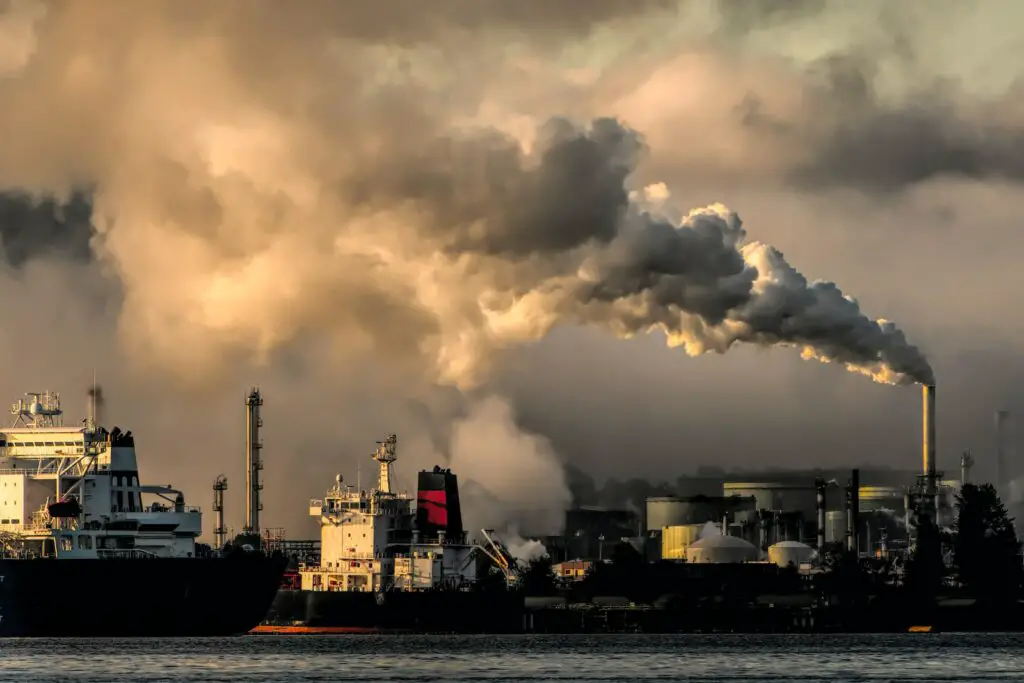Climate change is the global phenomenon of rising temperatures due to the accumulation of greenhouse gases in the atmosphere. Greenhouse gases, such as carbon dioxide and methane, trap heat in the atmosphere and cause the Earth’s average temperature to rise.
This process is known as the “greenhouse effect”. It has been linked to environmental and human health problems, including extreme weather events, droughts, floods, rising sea levels, and infectious diseases. The most significant sources of greenhouse gas emissions are human activities, such as burning fossil fuels, deforestation, and agricultural practices. As a result, reducing emissions from these sources can help mitigate climate change’s effects.
What are greenhouse gases?
The greenhouse gases in the atmosphere play a significant role in regulating the temperature of the planet. Greenhouse gases in the atmosphere makes the Earth’s climate warmer. Without greenhouse gases, the Earth would be too cold for life to exist. Greenhouse gases occur naturally and are essential for life on Earth. However, human activities are increasing the number of greenhouse gases in the atmosphere and causing the Earth’s climate to warm.
Burning fossil fuels such as coal and oil releases carbon dioxide into the atmosphere. Deforestation also increases atmospheric carbon dioxide levels by removing trees that absorb carbon dioxide. Methane is another important greenhouse gas produced by livestock and waste decomposition.
Nitrous oxide comes from fertilizers and other human activities. Ozone is a special kind of molecule that consists of three oxygen atoms. Ozone in the upper atmosphere protects us from harmful ultraviolet rays from the sun. However, ozone near the ground is a pollutant that contributes to smog and respiratory problems.
Greenhouse effect
The greenhouse effect is a natural process that helps to regulate the Earth’s temperature. While the greenhouse effect is essential for life on Earth, too much greenhouse gas pollution can cause problems. Too many greenhouse gases in the atmosphere create an “enhanced” greenhouse effect, trapping even more heat and raising the Earth’s temperature. Human activities like burning fossil fuels and deforestation are increasing the levels of greenhouse gases in the atmosphere, leading to climate change. Climate change is a global problem that seriously affects our environment, economy, and health.

Greenhouse gases and climate change
There is a lot of debate surrounding the topic of climate change and its causes. Some scientists believe that climate change is caused by greenhouse gases, while others believe it is caused by natural cycles. Greenhouse gases are produced when we burn fossil fuels like coal and oil. Greenhouse gases cause the Earth’s atmosphere to warm, which can lead to climate change.
Climate change is a broad term that refers to significant changes in temperature, precipitation, or wind patterns over a long period. Natural factors like volcanic eruptions can cause climate change, but they can also be caused by human activity, like burning fossil fuels.
A lot of evidence suggests greenhouse gases are causing climate change. For example, the concentration of greenhouse gases in the atmosphere has been increasing since the Industrial Revolution. This increase in greenhouse gases has coincided with an increase in global temperatures.
Computer models have also been used to simulate how different levels of greenhouse gas emissions would affect the climate. These models show that increased greenhouse gas emissions would lead to warmer temperatures and more extreme weather events. So, while there is still some debate surrounding the exact cause of climate change, many scientists believe greenhouse gases play a major role. And as concentrations of these gases continue to rise, we can expect even more changes in our climate in the years ahead.
How can we reduce greenhouse gas emissions?
To reduce greenhouse gas emissions, we must change how we produce and use energy. We can do this by using more renewable energy sources, like solar and wind power. We can also make our buildings more energy-efficient so they use less energy to keep us warm or cool.
Greenhouse gas emissions are the main contributor to climate change, and reducing them is essential to reducing the impact of climate change. There are many ways to reduce greenhouse gas emissions. Listed below are some of the important ways to reduce greenhouse gas emissions:
- Increase the Use of Renewable Energy Sources: Replacing traditional energy sources with renewable sources such as solar, wind, and geothermal can help reduce greenhouse gas emissions.
- Improve Building Efficiency: Improving the efficiency of buildings by using energy-efficient appliances, insulation, and other measures can help reduce energy use and greenhouse gas emissions.
- Increase the Use of Public Transportation: Encouraging people to use public transportation rather than driving can help reduce vehicle greenhouse gas emissions.
- Increase Resource Efficiency: Reducing the number of resources used in production processes can help reduce greenhouse gas emissions.
- Shift to Low-Carbon Diets: Eating less meat and dairy products and shifting to a more plant-based diet can help reduce greenhouse gas emissions associated with food production.
- Implement Carbon Pricing: Putting a price on carbon emissions can help reduce greenhouse gas emissions by making them more expensive.
- Implement Carbon Capture and Storage: Capturing carbon dioxide from industrial processes and storing it underground can help reduce greenhouse gas emissions.
- Reduce Waste: Reducing the amount of waste generated can help reduce greenhouse gas emissions associated with waste management.
- Invest in Natural Carbon Sinks: Investing in forests, wetlands, and other natural carbon sinks can help reduce greenhouse gas emissions by storing carbon dioxide.
- Promote Sustainable Forestry: Promoting sustainable forestry practices can help reduce greenhouse gas emissions associated with deforestation.
Conclusion
It’s clear that greenhouse gases are a major cause of climate change, but it’s also important to remember that there are other contributing factors. Deforestation can release large amounts of carbon dioxide into the atmosphere, and agricultural practices can also have an impact.
As human activities emit more greenhouse gases into the atmosphere, the concentration of these gases increases, causing the Earth’s temperature to rise. This temperature rise leads to climate changes, including more extreme weather events and sea level rise. It’s important to consider these factors when trying to mitigate climate change.
